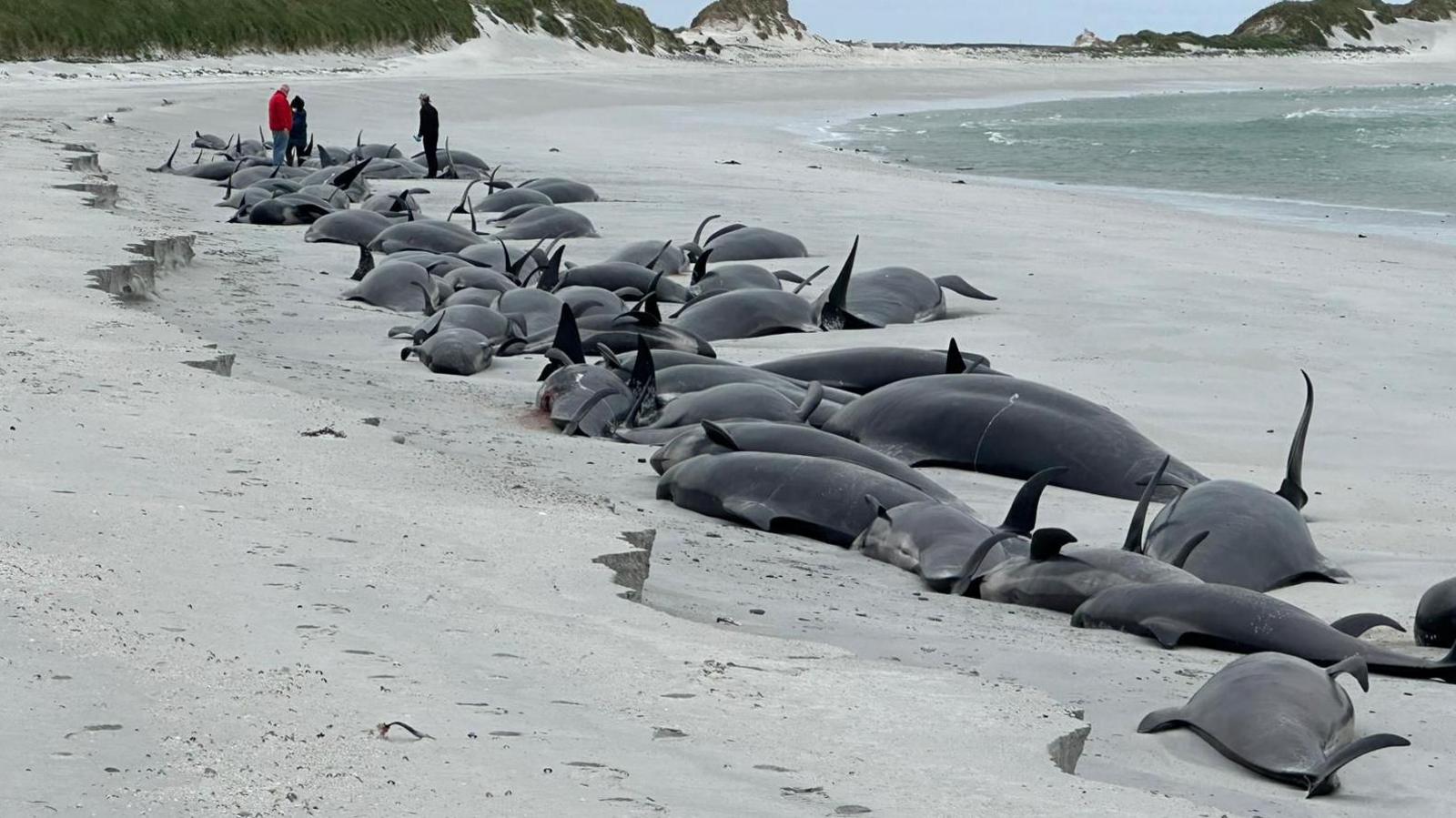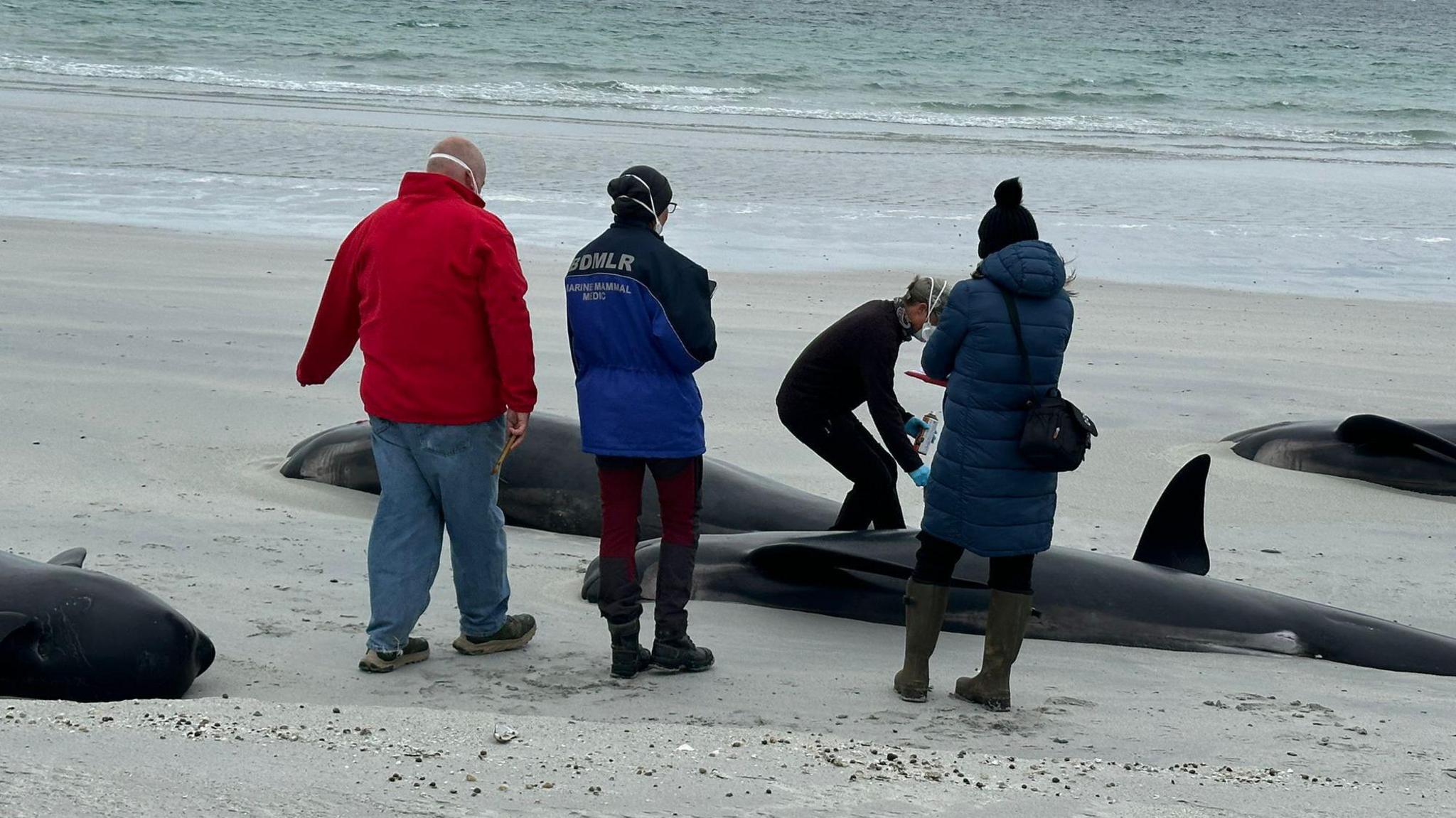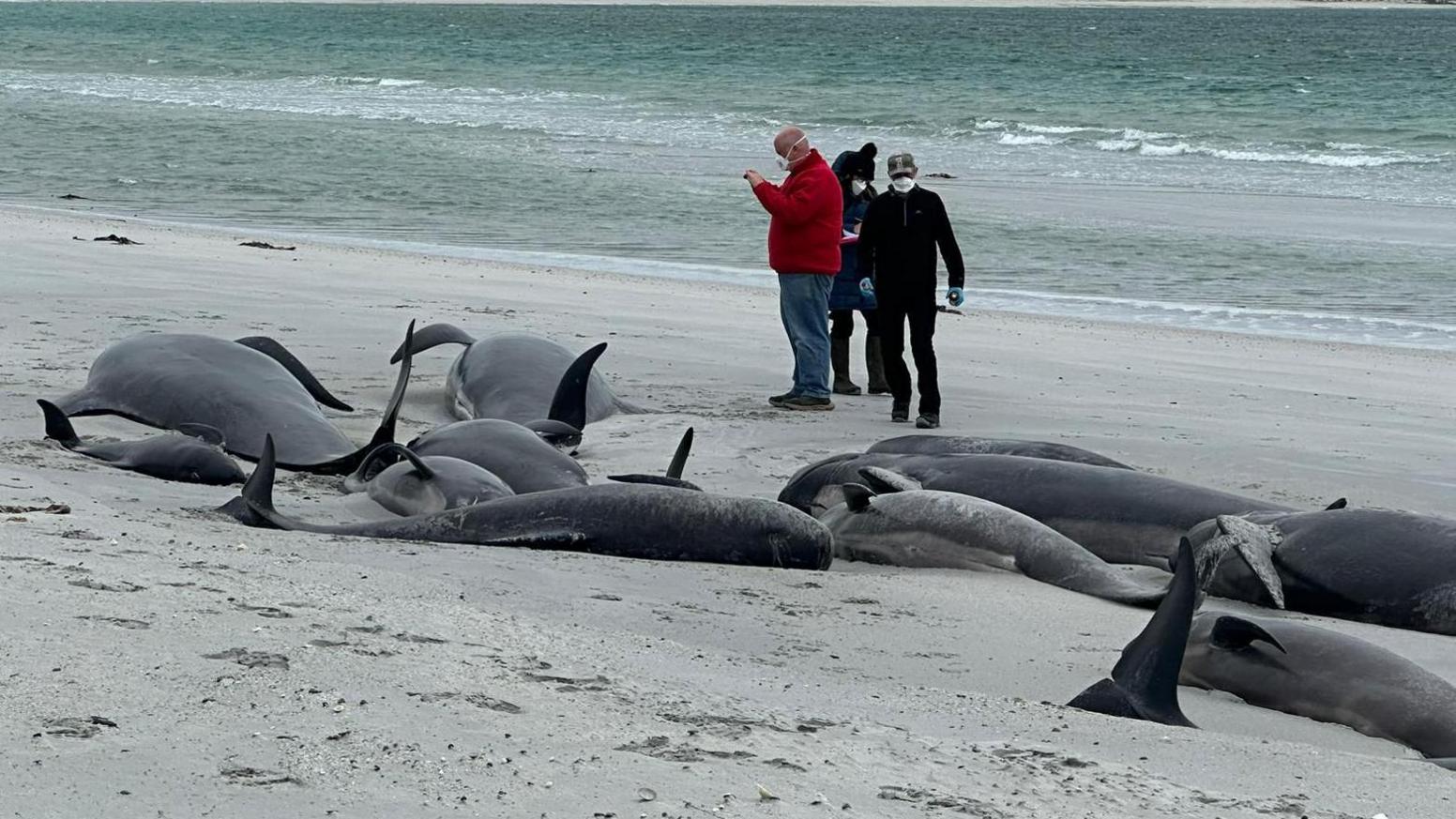Whole pod of 77 whales die in 'biggest mass stranding in decades'
Whales die in major stranding on Orkney beach
- Published
A pod of 77 pilot whales has died after washing ashore on a beach in Orkney in what could be the biggest mass stranding for decades.
The British Divers Marine Life Rescue (BDMLR) had established 12 of the animals at Tresness Beach on the island of Sanday were still alive when they came out of the water.
However the decision was taken to euthanise them after refloating efforts failed.
The pod included male whales up to seven metres (22ft) long as well as females, calves and juveniles.
Experts say it is too early to know what has caused the stranding, but it is likely one of the whales got into trouble and the rest of the pod tried to help.
Members of the public are being asked to stay away from the area while post mortem examinations are carried out.

The pod includes calves and juveniles
It is thought to be the largest stranding event in Scotland since at least 1995, when the Scottish Marine Animal Stranding Scheme (SMASS) was founded - though strandings of a similar scale have been seen in recent years.
Last year an entire pod of 55 pilot whales died following a stranding on Lewis.
Only 15 of the whales were alive when they were washed ashore. One was successfully re-floated while the rest had to be euthanised.
Between 60-70 of the animals came into shallow waters in Sutherland in 2011.
According to the Natural History Museum, external, the largest UK stranding took place in 1927 when 126 out of more than 130 false killer whales died in the Dornoch Firth in the Highlands.
Experts probe one of UK's worst whale strandings
- Published17 July 2023
Entire pod of 55 whales dies after mass stranding
- Published16 July 2023
How do you dispose of a whole pod of 77 whales?
- Published11 July 2024
Experts from the BDMLR, the Scottish SPCA and marine vets from the Scottish mainland travelled to Sanday to assess whether any of the whales could be saved.
The area was cut off by the high tide and the sand on the beach where they were stranded proved too soft to allow the mammals to be righted.
The whales needed to be moved back into an upright position as quickly as possible if there is to be any chance of saving them.
But the soft sand meant the whales fell back over when the rescuers attempted to right them.
Emma Neave-Webb from the BDMLR said early on that while these experiences are difficult, the thinking had to be "realistic".
'Hugely emotional'
BDMLR medics were brought in from mainland Orkney and Inverness to help with the rescue attempt, but Ms Neave-Webb said it appeared the whales had been stranded for "quite some time".
She described the scene as "really quite horrible" and "hugely emotional".
Rescuers attempted to keep the whales alive by pouring sea water over them, but the decision was later taken to euthanise them.

Experts are at the beach to assess what can be done for the whales
A spokesperson for Orkney Islands Council said discussions were taking place with community representatives on how best to dispose of the bodies.
They said: "In previous circumstances where whales have beached on our shores and subsequently died, the approach from our Environmental Health team around disposing of the body has been to allow nature to take its course - with the public advised to stay away from the area.
"Our assessment in this case, given the scale and the likely public health implications, is that more definite action will need to be taken, for example burying them where they are or removing the bodies to a large grave site elsewhere."

It is believed that 12 of the whales on Tresness Beach were still alive
Andrew Brownlow of the Scottish Marine Animal Stranding Scheme said mass strandings of this scale are becoming more common in Scotland.
He told BBC News: "It used to be quite unusual to have a mass stranding event, certainly of this size.
"But over the last ten years or so we have seen an increase both in the number of mass stranding events around Scotland and also the size of the mass and the number of animals that it involves.
"So that is slightly concerning and that might be because there are just more animals out there, or it could be that there are more hazards that these animals are exposed to.”